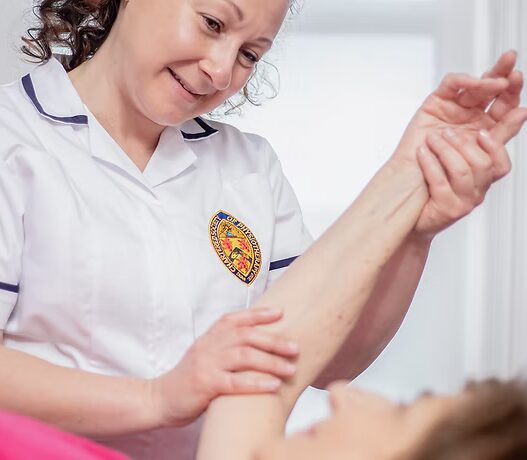Dr Laura Clark is a specialist Women’s Health GP and Lifestyle Medicine Doctor. Here she shares experiences about common menopause misunderstandings that every woman should know.
Menopause and perimenopause are life stages that every woman will experience, yet the amount of misinformation surrounding them is staggering. From out of date medical advice to well-meaning but inaccurate comments from friends, these myths can delay women from getting the help they need.
In our clinic, we see the same misunderstandings crop up again and again and women tell us it leaves them confused, worried, or feeling dismissed. It’s time to set the record straight.
Below, we tackle some of the most common menopause and perimenopause myths we hear from women , backed by the latest evidence and clinical guidance.
Myth 1: “You have to have stopped having periods to experience menopause symptoms.”
Truth: This one is incredibly common and completely false. Many symptoms begin years before your final period: this stage is called perimenopause.
Menopause is defined as the point when you haven’t had a period for 12 consecutive months. But the years leading up to that known as perimenopause are when most symptoms begin. Hot flushes, night sweats, mood changes, brain fog, low libido, and joint aches can all start while your periods are still happening, sometimes regularly.
In fact, for many women, perimenopause is the most symptomatic phase. Periods may become lighter or heavier, closer together or further apart, or stay much the same for a while. Waiting until they’ve stopped completely before seeking help can mean many years of unnecessary suffering.
If you’re experiencing troublesome symptoms in your 40s (or even late 30s), it’s important you speak to a healthcare professional who understands menopause and can advise on all your options, whether that’s lifestyle advice, hormone treatment or other medications, or a combination.
Myth 2: “You can’t be perimenopausal if your hormone blood tests are normal.”
Truth: Hormone levels fluctuate daily. Diagnosis should be based on symptoms, not a single blood test.
This myth is frustrating because it often comes from within the healthcare system itself.
For most women over 45, a hormone blood test is not needed to diagnose perimenopause or menopause. This is because hormone levels naturally fluctuate throughout your cycle and can vary wildly hour to hour, from one day to the next. You could have symptoms in full force but still record a “normal” reading on the day your blood was taken.
The diagnosis should be based on your symptoms and age, not on a single blood test result.
Dr Laura Clark
Unfortunately, many women are told they are “fine” because their results are normal, and they leave the consultation doubting themselves. If your symptoms are affecting your quality of life, you deserve to be heard and supported, regardless of what a snapshot blood test says.
Myth 3: “You’ve been told you’re too young to be menopausal.”
Truth: Menopause can happen at any adult age. Around 1 in 100 women experience it before 40, and 5% between 40–45.
While the average age of menopause in the UK is 51, around 1 in 100 women will experience menopause before the age of 40 (known as premature ovarian insufficiency, or POI), and about 5% will go through it between ages 40 and 45 (known as early menopause).
This can happen for many reasons: genetics, autoimmune conditions, certain cancer treatments, or sometimes with no clear cause. Early menopause and POI carry additional long-term health risks, including osteoporosis and heart disease, because of the longer time spent with lower oestrogen levels. For these women, HRT is not just about symptom relief it’s also important for long-term health protection (unless there’s a specific medical reason not to take it).
If you’re under 45 and having symptoms, don’t let your age stop you from seeking advice. Menopause can happen at any adult age.
Myth 5: “I can’t take HRT, so there’s nothing I can do to improve my symptoms.”
Truth: Non-hormonal treatments and lifestyle changes can still make a big difference to symptoms and long-term health.
While HRT is the most effective treatment for many menopausal symptoms, it’s not the only option. For women who can’t take HRT, or choose not to, there are alternatives.
- Non-hormonal prescription medications such as certain antidepressants (SSRIs/SNRIs), oxybutynin, or Veoza (Fezolinetant) can help with hot flushes and night sweats
- Local vaginal oestrogen (in cream, pessary, or ring form) is very low dose, works only in the vaginal and pelvic tissues, and can be safely used by most women even those who can’t take other HRT to relieve dryness and discomfort.
And perhaps most importantly, lifestyle can have a huge impact on both symptoms and long-term health protection ( regardless of medication use):
- Regular exercise helps regulate mood, builds muscle, supports bone and heart health, and can improve sleep.
- Balanced nutrition rich in whole foods, protein, healthy fats, and plenty of vegetables supports energy, hormone balance, and weight management.
- Limiting alcohol and caffeine can reduce flushes and improve sleep quality.
- Good sleep hygiene and stress management techniques, such as mindfulness, yoga, reflexology or breathing exercises, can help reduce the intensity of symptoms.
Menopause is a whole-body transition, and while medication is a powerful tool, how you live day-to-day makes a significant difference too. You’re never powerless.
Myth 6: “Testosterone is only for men.”
Truth: Women produce testosterone too and it plays a key role in energy, mood, and sexual desire.
Testosterone can be useful for postmenopausal women whose symptoms persist despite using HRT, particularly when these symptoms affect sexual function. When prescribed and monitored according to guidelines, it is considered safe and effective,
While private clinics in the UK have been prescribing testosterone ‘off licence’ for years, the recent MHRA approval of AndroFeme® cream is the first licensed testosterone treatment for women. This is good news, a step forward, but it hasn’t changed NHS prescribing practices or NICE guidance yet – where male products are used instead.
Why These Myths Matter
The danger of these myths is that they delay women from getting help. Every week, we see women who have been told to “come back when your periods stop” or “your blood tests are normal, so it’s not menopause” sometimes after years of symptoms affecting their work, relationships, and mental health.
The effects of perimenopause and menopause can have a huge impact on day-to-day life. Left unmanaged, symptoms can erode confidence, strain relationships, and even lead to women leaving their jobs. Over the long term, low oestrogen can increase the risk of serious conditions, including osteoporosis and heart disease.
Good menopause care is about more than just prescribing HRT. It’s about listening to women, understanding their symptoms, offering lifestyle support, and supporting women with the right knowledge to make informed decisions about their own health.
Dr Laura Clark
If you take one thing away from this article, let it be this: don’t wait for the “right” blood test result or for your periods to stop before seeking help. If you’re experiencing symptoms that are affecting your quality of life, it may be time to seek some support.
You can find Laura at The Lifestyle Clinic on our Women’s Health and Wellbeing Directory.

Dr Laura Clark
Specialist Women’s Health GP and Lifestyle Medicine Doctor.
Dr Laura Clark is a Women’s Health GP and has a specialist interest in women’s health, hormones, and lifestyle medicine.
She has additional training in women’s health, gynaecology, sexual health, and contraception and is a member of the British Menopause Society.
She has studied with the British Society of Lifestyle Medicine, and works both in the NHS and privately.
Laura brings clinical expertise together with lived experience of hormone health, knowing first hand how disruptive it can be when you don’t feel like yourself.
MBChB BSc MRCGP (2010) DRCOG FHEA IBLMDip GMC 6147202




















